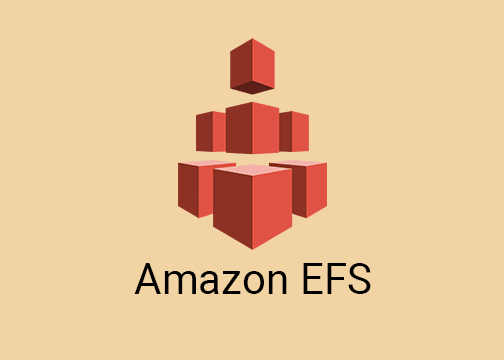Instance Stores
Instance Stores are block-level storage volumes which behaves like physical hard drives. It provides temporary block-level storage for an Amazon EC2 instance. It is physically attached to the host computer for an EC2 instance. When the instance is terminated, the instance store gets deleted along with the data in the instance store. Instance Store should only be used to store temporary data which is not needed in the long term.
Amazon Elastic Block Store (Amazon EBS)
Amazon EBS provides block-level storage volumes which can be used with Amazon EC2 instances. It is not a temporary storage which means if the Amazon EC2 instance is terminated, all the data on the attached Amazon EBS volume remains available.
It is important to backup the data as the data that needs to persist is stored in EBS volumes. Amazon EBS Snapshots can be used to take incremental backups of EBS volumes.
Amazon EBS Snapshots - It is an incremental backup which means that the first backup of the volume copies all the data but subsequent backups only copies the blocks of data that have been changed.
Amazon Simple Storage Service (Amazon S3)
Amazon S3 provides object-level storage. It stores data as objects in buckets. Each object consists of data, metadata, and a key. The data can be any image, video or any type of file. Metadata contains information about what the data is, how it is used, the size of the object, and so on. An object's key is its unique identifier.
Amazon S3 offers unlimited storage space. The maximum file size for an object is 5 TB. Permissions for controlling visibility and access permissions, Amazon S3 versioning feature to track changes in objects over time can be used while uploading a file to Amazon S3.
Amazon S3 Storage Classes
Users pay only for what they use with Amazon S3. Below are the Amazon S3 Storage Classes :
S3 Standard - It is designed for frequently accessed data and it stores data in a minimum of three Availability Zones.
S3 Standard-Infrequent Access (S3 Standard-IA) - It is ideal for infrequently accessed data and is similar to S3 Standard but has a lower storage price and higher retrieval price.
S3 One Zone-Infrequent Access (S3 One Zone-IA) - It stores data in a single Availability Zone and has a lower storage price than S3 Standard-IA.
S3 Intelligent-Tiering - It is ideal for data with unknown or changing access patterns and requires a small monthly monitoring and automation fee per object.
S3 Glacier - It is a low-cost storage designed for data archiving and it can retrieve objects within a few minutes to hours.
S3 Glacier Deep Archive - It is the lowest-cost object storage class ideal for archiving and it can retrieve objects within 12 hours.
Amazon Elastic File System (Amazon EFS)
Amazon EFS is a scalable file storage system used with AWS Cloud services and on-premises resources. It grows and shrinks automatically as users add or remove files. It can scale on demand to petabytes without disrupting applications.
Please feel free to write @ rewooparth.rp@gmail.com for any queries on AWS Storage Services & stay tuned for next write-up.
Thank you!










Top comments (0)